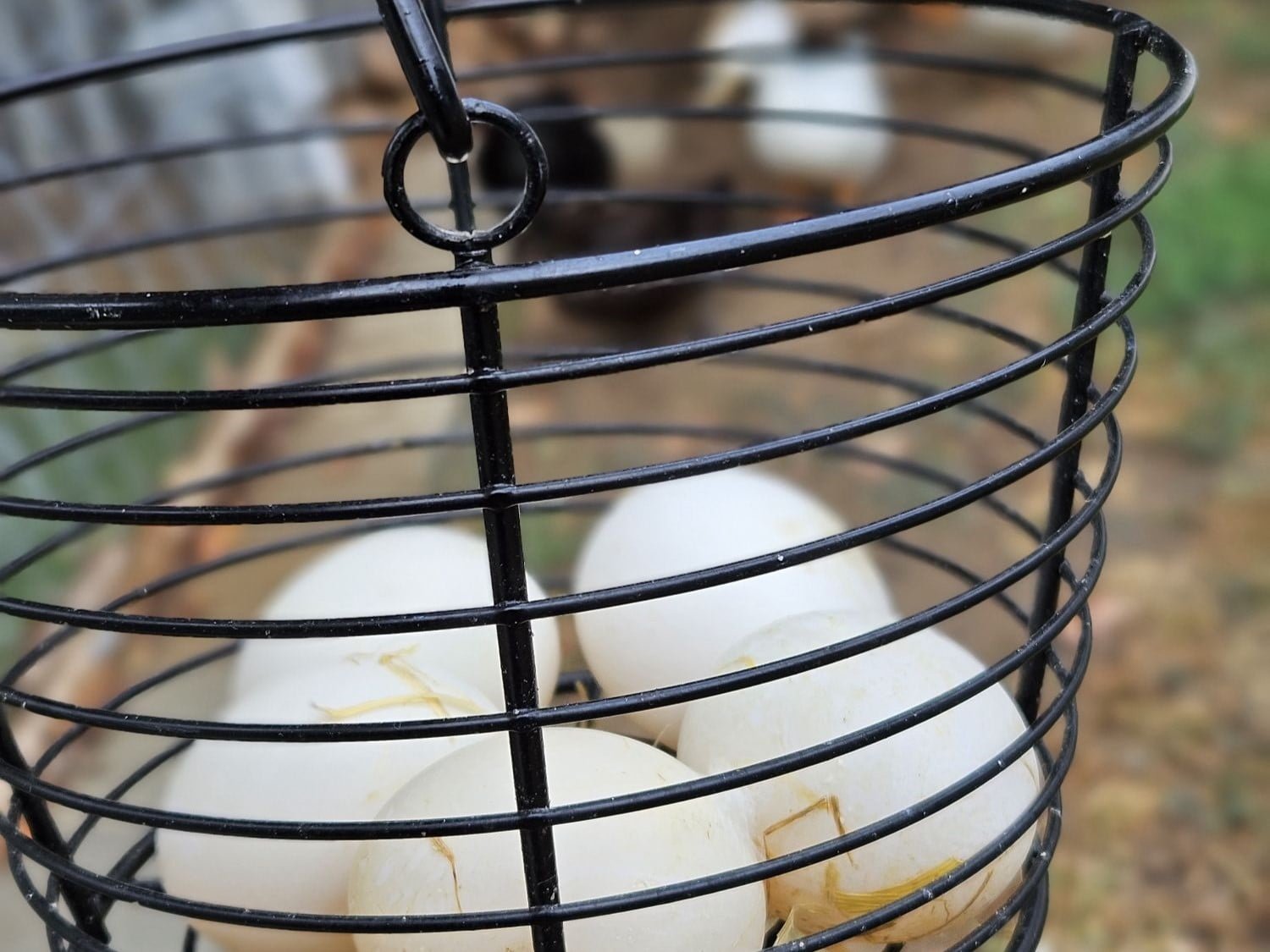
No Eggs from Your Ducks? Discover 7 Reasons Why
Last updated on January 15th, 2026 at 02:16 pm
Have you ever looked at an empty duck nest and wondered, “Where are my duck eggs?” Don’t worry, you’re not alone. Even experienced duck owners can get pretty frustrated when their ducks suddenly stop laying eggs. But don’t stress, fellow duck lovers! This blog post is here to help you figure out why you have no eggs from your ducks and, most importantly, how to get them back on track!

Ducks of Providence is free, thanks to reader support! Ads and affiliate links help us cover costs—if you shop through our links, we may earn a small commission at no extra cost to you. Thanks for helping keep our content free and our ducks happy! 🦆 Learn more
1. Duck Age and Egg Production
One important factor influencing egg laying is the duck’s age. Similar to humans, ducks have developmental stages affecting their reproductive capabilities.
Young Ducks:
One factor influencing your ducks’ egg-laying journey is their age. Similar to humans, ducks have developmental stages affecting their reproductive capabilities. Most duck breeds start laying around 5-6 months old, but it can take several weeks or even months for them to reach their full laying potential. Think of it as their practice round! While they may lay occasionally during this time, full production will gradually increase as they reach their prime.
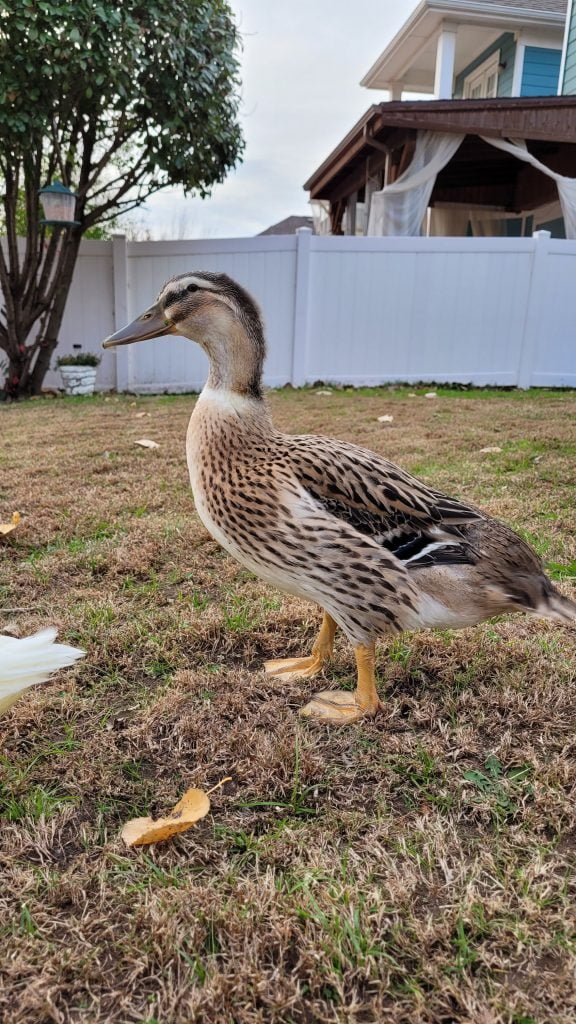
Peak Laying Years of Ducks:
Once ducks reach their late teens (around 1-2 years old), they enter their peak laying years. This is the golden age when they consistently produce a good number of eggs, often daily or every other day. This period can last for several years, providing a reliable source of delicious eggs for your breakfast table.
Aging Ducks Slow Down Their Egg Production:
On the other side of the spectrum, older ducks approaching retirement age (approximately 7-9 years) may naturally experience a decline in egg production. This is a normal biological occurrence, similar to human menopause. Senior ducks may lay fewer eggs, take longer breaks between laying periods, or eventually stop laying altogether. This is perfectly normal and shouldn’t be a cause for alarm.
Remember:
Every duck is an individual, and their laying patterns can vary depending on breed, health, and other factors. Some young ducks may start earlier than 5-6 months, while some older ducks may continue laying well past 7-9 years.
While age plays a significant role, it’s important to consider other aspects of your duck’s care to ensure they’re happy and healthy, leading to a fulfilling egg-laying journey. Additionally, breed plays a role, with some breeds known for naturally laying fewer eggs throughout their lifetime.
By understanding the influence of age on duck egg production, you can set realistic expectations and provide the best possible care for your feathered friends at each stage of their lives.
2. Seasonality and the Cycle of Duck Eggs
Just like the changing seasons influence the blooming of flowers and the migration of birds, they also play a fascinating role in the egg-laying habits of ducks. Understanding this natural rhythm can help us manage our feathered friends’ expectations and avoid unnecessary disappointment.
Springtime Awakening:
With the days growing longer and temperatures warming, spring ignites a surge in duck hormones. This is nature’s way of encouraging breeding and ensuring plenty of resources for ducklings to thrive in the summer months. Expect your ducks to lay their most consistent and highest number of eggs during this period, often daily or at least every other day.
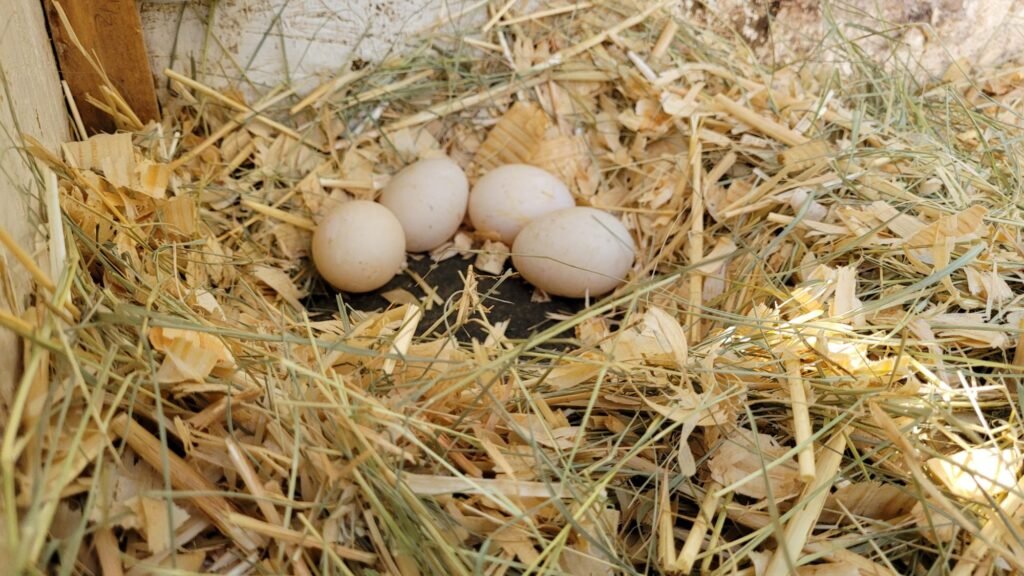
Summer Siesta:
As days reach their peak length in summer, a subtle shift occurs. Ducks may take a well-deserved break from their egg-laying marathon, reducing their production or pausing longer between laying. This dip is perfectly natural, as it allows them to conserve energy. Some ducks may even take a complete laying hiatus during this season, focusing on raising their young if they’ve nested earlier. Don’t worry the egg production will resume in due time.
Autumnal Adjustment:
Ducks prepare for the colder months ahead as days shorten and temperatures cool. Egg production typically resumes, although not at the same peak as spring. This gradual increase bridges the summer lull and the winter slowdown.
Winter Wonderland (or Eggless Land):
Winter presents the biggest challenge for egg enthusiasts. With short days and cold temperatures, ducks naturally conserve energy and reduce egg production. So you may see no eggs from your ducks. While some breeds might continue laying throughout the year, others prefer to conserve their resources until spring arrives. Don’t be discouraged; this is how they adapt to the harsher conditions.
Molting Season and Egg Laying
Molting isn’t just a cosmetic makeover. It’s an energy-intensive process that demands significant resources from the duck’s body. To prioritize this vital regeneration, egg production takes a temporary pause, often slowing down significantly or even ceasing altogether. This is especially true for female ducks, as egg-laying requires additional energy expenditure.
While the lack of eggs might be disappointing, it’s important to remember that molting is crucial for a duck’s health and well-being. The new feathers provide better insulation, waterproofing, and protection from harsh weather conditions. Additionally, molting can be a sign of a healthy duck, as it indicates proper nutrition and a well-functioning metabolism.
➡️ Read more about duck molting
Remember:
Seasonality is a natural phenomenon, not a cause for concern. While ducks may lay fewer eggs during certain periods, understanding the underlying reasons can help us adjust our expectations and provide the best care for our feathered companions throughout the year.
3. From Feed to Egg: A Duck’s Nutritional Needs
Like a high-performance car needs the right fuel to run smoothly, a duck’s egg-laying machinery relies on a balanced diet to keep those yolks rolling. Understanding their nutritional needs is crucial for maximizing egg production and ensuring your feathered friends are healthy and happy.
Calcium and Eggs:
Eggshells are made of calcium, and producing them requires a significant amount of this mineral. Ducks need a steady supply of calcium, found in foods like oyster shells, crushed limestone, and leafy greens. Without sufficient calcium, ducks may lay eggs with soft or brittle shells or even stop laying altogether.
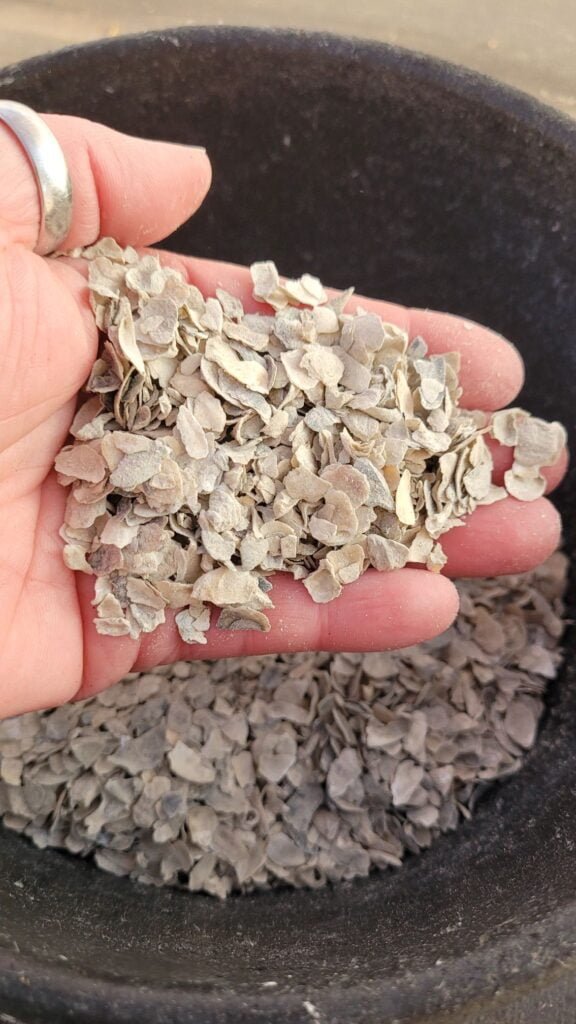
Eggs are a Protein Powerhouse:
Eggs are packed with protein, and unsurprisingly, protein is crucial for ducks’ egg production. Aim for a diet containing 16-18% protein from sources like commercial duck feed. High-quality protein sources like fish and insects are essential for optimal egg production. Remember, variety is key! Offering a mix of protein sources ensures your ducks receive all the necessary amino acids for egg development.
➡️ Read more about Commercial Duck feed
Vitamin Symphony for Strong Eggs:
Vitamins play a vital role in various bodily functions, including egg production. Vitamin D helps with calcium absorption, while vitamins A and E contribute to overall health and reproductive function. Commercial duck feed usually covers these needs, but you can also supplement with fresh greens, vegetables, and even some sunlight, which helps them naturally obtain these essential vitamins.
Water Works Wonders:
Water is often overlooked, but it’s just as important as food for egg production. Ducks need access to clean, fresh water at all times. Proper hydration helps them digest food efficiently and utilize nutrients for egg creation.

Special Offer for Ducks of Providence Readers
As a valued member of the Ducks of Providence community, we’re excited to offer you an exclusive discount on Scratch and Peck Oyster Shells. Simply use code providence15 to save 15% on your first order when you shop:
Remember:
A balanced and nutritious diet is the foundation for a thriving duck flock. By providing your feathered friends with the right fuel, you’re setting them up for success, ensuring a steady flow of delicious eggs and happy, healthy ducks. Learn more about the nutritional needs of ducks and what to feed them in the blog post below:
➡️Essential Nutritional Needs of Ducks
4. Stress Can Affect Duck Egg Production
Life isn’t always sunshine and puddles for our feathered friends. Like us, ducks can experience stress, and those ruffled feathers can surprisingly impact their egg-laying habits. Understanding the common culprits of ducky stress can help us create a calm and happy environment for them, leading to a return of those precious ovals.
Stressful Situations for Ducks:
Imagine a duck facing a predator, a loud construction project, or even a change in their routine. These are just a few examples of stressors that can trigger a hormonal cascade, releasing stress hormones like cortisol. The body’s fight-or-flight response kicks in, diverting energy away from egg production and towards survival.
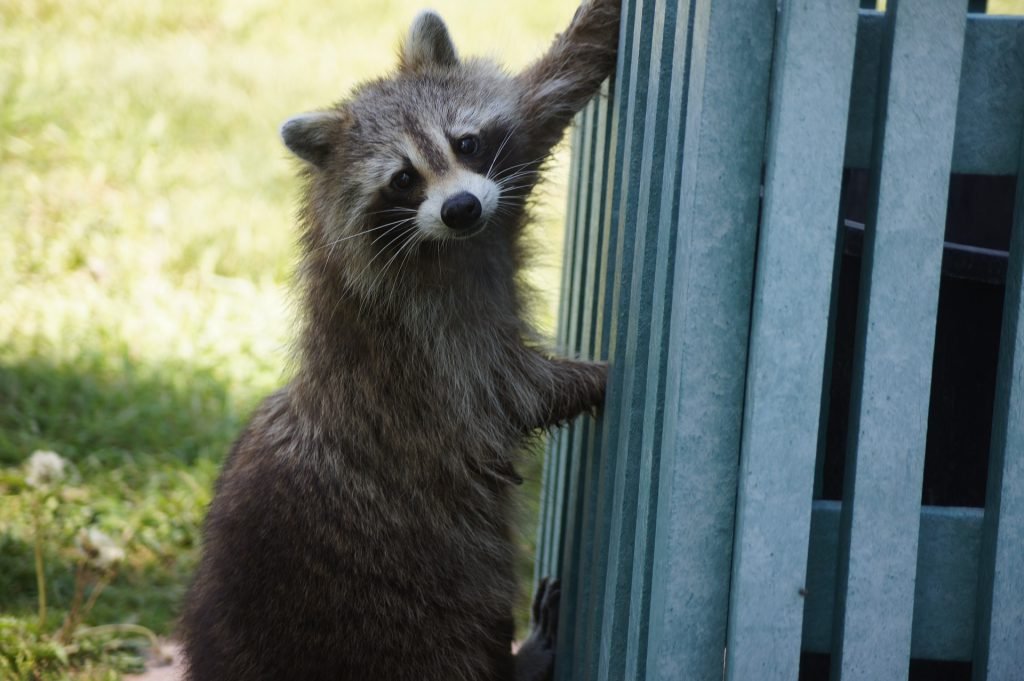
The Physiological Domino Effect:
When stress hormones surge, they disrupt the delicate hormonal balance needed for egg laying. Cortisol can directly affect the delicate hormonal balance needed for egg development. It can slow down the production of follicle-stimulating hormone (FSH), which plays a crucial role in egg maturation. Additionally, stress can disrupt the ovulation process, leading to missed cycles or even temporary infertility. Think of it as putting the brakes on the egg-laying assembly line.
Signs of Stress in Ducks:
Ducks don’t wear stress watches but display certain behaviors when feeling overwhelmed. Watch for excessive feather plucking, changes in appetite, lethargy, or even aggressive interactions with other ducks. These can be subtle clues to a stressed-out duck needing your help.
Creating a Calm Sanctuary for Your Ducks:
Providing a stress-free environment is key to keeping your ducks happy and productive. Ensure their enclosure is spacious, with plenty of hiding places and access to fresh water and shade. Minimize loud noises and sudden changes to their routine. Consider offering enrichment activities like foraging opportunities or swimming pools to keep them mentally stimulated and engaged. Remember, a happy duck is a laying duck!
➡️ Learn how to predator proof your coop
Remember:
Stress is a natural part of life for all animals, including ducks. However, recognizing the signs, understanding the impact on egg production, and creating a low-stress environment can help your feathered friends bounce back from stressful situations and get those egg yolks flowing again.
5. Duck Health and Egg Production
Sometimes, even the best care and environment can’t prevent a hiccup in your duck’s egg-laying routine. While stress and seasonality play a significant role, certain health problems can also be culprits hiding under the feathers. Let’s explore some potential health issues and how to recognize them:
Internal Parasites:
These unwelcome guests can steal nutrients needed for egg production, leading to decreased output. Watch for signs like weight loss, diarrhea, or pale feathers. Consult a veterinarian for proper diagnosis and treatment.
➡️ Learn more about internal duck parasites
Nutritional Deficiencies:
Certain deficiencies can impact egg production beyond the basics of protein, calcium, and vitamins. Lack of vitamin A, for example, can affect egg yolk development. Monitor your ducks’ diet and ensure they get a balanced mix of nutrients, potentially supplementing if needed.
Reproductive Issues:
Certain reproductive problems can also impact egg production. Egg binding, where a large or misshapen egg gets stuck inside the duck, is a serious condition requiring immediate veterinary intervention. Reproductive tumors or hormonal imbalances can also affect egg-laying. While uncommon, these issues require attentive monitoring and professional guidance. Consulting a veterinarian is crucial for proper diagnosis and treatment.
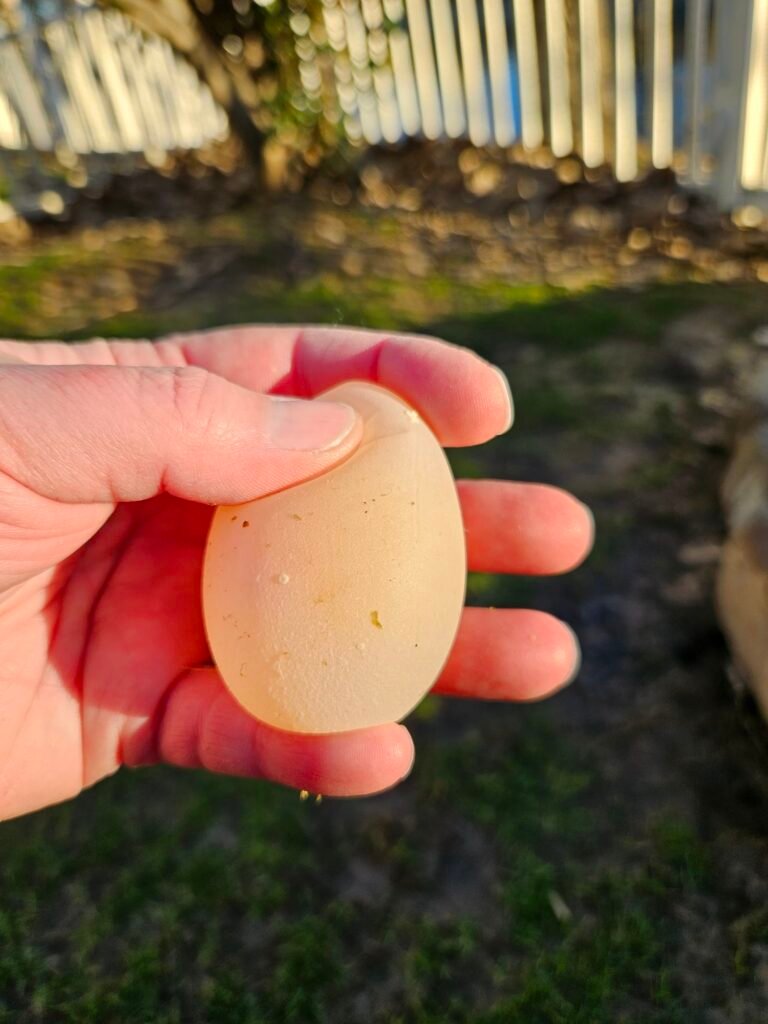
Infections:
Bacterial or viral infections can weaken ducks and divert resources from egg production. Watch for symptoms like lethargy, loss of appetite, or runny discharge from the eyes or nose. Prompt veterinary intervention is essential for preventing complications.
Environmental Toxins:
Exposure to pesticides, herbicides, or other toxins can have detrimental effects on duck health, including egg production. Ensure your ducks have access to clean water and avoid using harmful chemicals in their environment.
Remember:
While these are potential health issues, early detection and prompt veterinary care are crucial for maintaining your ducks’ well-being and egg production. Regular health checks, observation, and a clean environment can go a long way in keeping your feathered friends happy and healthy.
➡️Read this blog post below to learn more about common health issues in ducks
6. The Role of Genetics in Duck Egg Production
While hard work and good care can go a long way towards a bountiful egg harvest, some things about your duck’s egg production are simply written in their genes. Understanding the influence of genetics can help you manage expectations and appreciate the unique qualities of your feathered friends.
Is it really a girl?
Sometimes, the eggless mystery isn’t about age, season, or stress. Often, the culprit is a simple case of mistaken identity! It’s surprisingly common for new duck owners, especially those attracted by the vibrant plumage of male ducks (drakes), to unknowingly find themselves with a flock of handsome fellas instead of egg-laying hens. While drakes are essential for fertilization, they don’t contribute to the breakfast table bounty. So, if your duck pond is suspiciously bereft of yolks, a gentle check for a drake’s telltale curled tail feathers might just crack the case!
➡️ Learn how to sex your ducks
Breed Matters:
Just like humans come in different shapes and sizes, so do ducks! Different breeds have been selectively bred for various purposes, and egg production is no exception. Some breeds, like Khaki Campbells or Indian Runners, are known for their prolific laying abilities, churning out over 300 eggs per year. Others, like Muscovy Ducks or Call Ducks, are primarily bred for meat or ornamental purposes and lay significantly fewer eggs. Knowing your breed’s genetic predisposition can help set realistic expectations and appreciate their unique egg-laying talents.
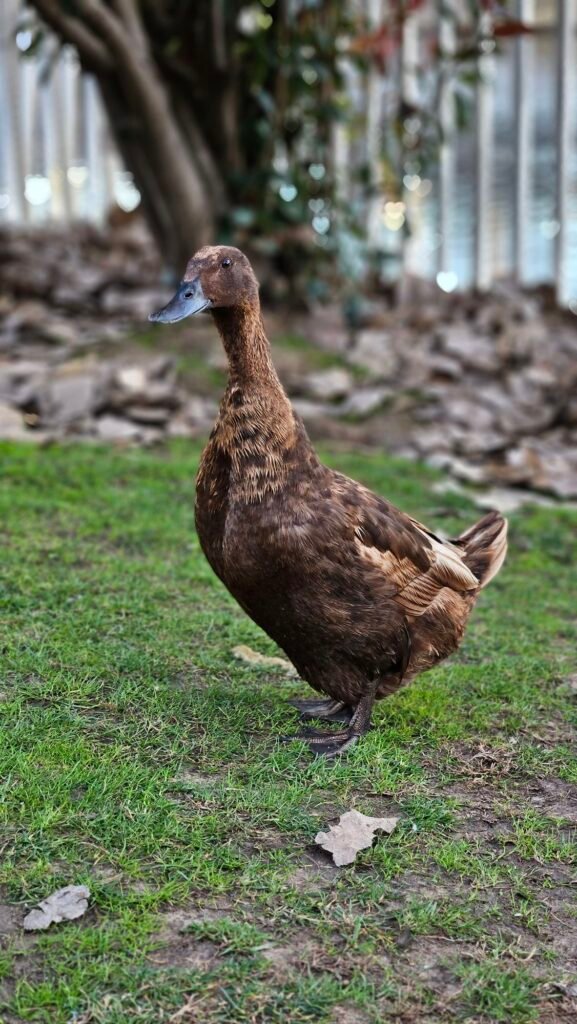
Egg Production Family Ties:
Just like humans inherit traits from their parents, so do ducks. If your duck’s parents were known for being egg-laying champions, there’s a good chance she’ll carry that legacy forward. However, genetics can be a bit of a gamble, and even within the same breed, individual variations in egg production are common. Embrace the diversity and appreciate your duck for the unique egg-laying personality she brings to your flock.
➡️ How Often Do Ducks Lay Eggs? Breaking Down Duck Egg Production and More
The Role of Traits and Tendencies in Egg-laying Frequency:
Genes influence not just the number of eggs but also the quality. Some breeds naturally lay eggs with stronger shells, while others lay eggs in different colors or sizes. For example, Maran ducks lay beautiful chocolate-colored eggs, while Cayuga Ducks boast stunning black shells. These genetic traits add variety and excitement to your breakfast table, even if the quantity might be lower than some champion layers.
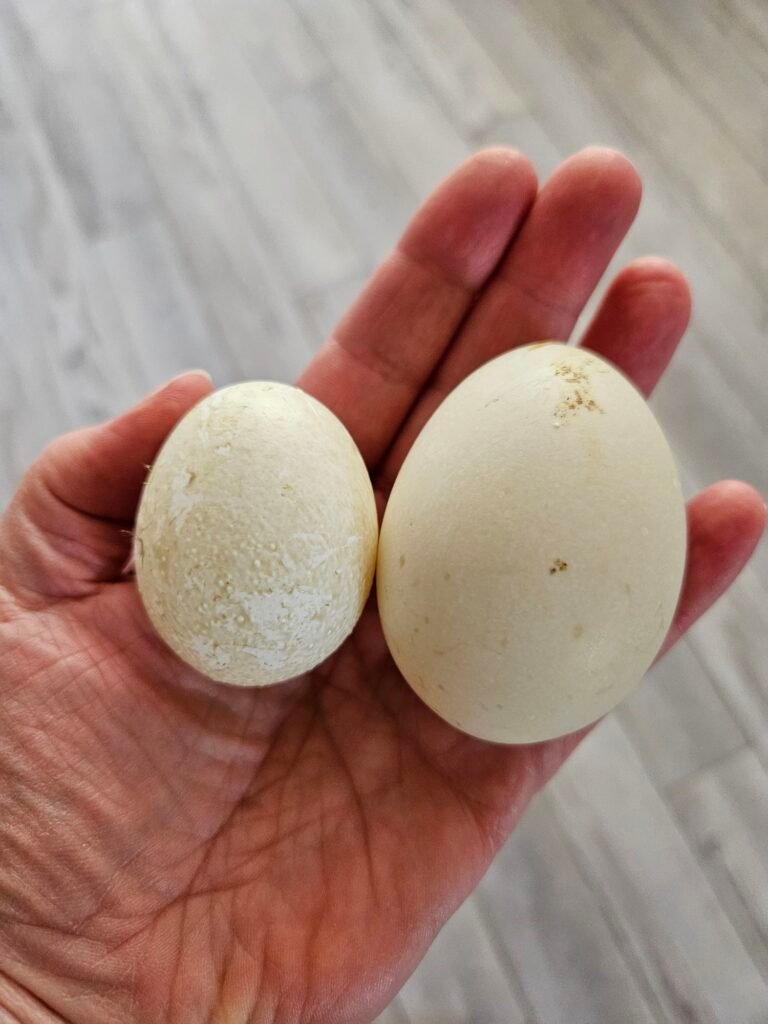
Remember:
Genetics play a role in your duck’s egg production, but they’re not the only story. By providing good care, managing stress, and understanding individual differences, you can create the best environment for your feathered friend to flourish, regardless of her genetic predisposition. Embrace the journey, celebrate the surprises, and enjoy the delicious rewards of having ducks in your life!
7. Other reasons you have no duck eggs
Misplaced Eggs
Unlike their regimented chicken counterparts, ducks lay eggs in a much less predictable manner. While chickens typically confine their egg-laying to dedicated nests, ducks are notorious for laying their eggs in various unexpected locations. This can include flower pots, garden ornaments, and even open spaces like patios or lawns. This seemingly random behavior stems from a combination of instinct and adaptability.
Ducks possess a strong nesting instinct, but various factors can influence their ideal nesting site. If their designated nest box feels threatened by predators, lacks proper camouflage, or becomes overcrowded, they may choose to lay elsewhere. This adaptability allows them to find safe and secure locations even in unfamiliar environments. Additionally, ducks lack the broodiness that compels chickens to remain in their nests. This means they are more likely to lay eggs in quick succession throughout the day, wherever they happen to be when the urge strikes.
While finding a rogue duck egg in your mailbox can be a humorous surprise, it’s important to understand that this behavior is not due to negligence or defiance. It’s simply a manifestation of their unique nesting instincts and opportunistic nature. If you’re a duck owner, providing them multiple nesting options in safe and secluded locations can help encourage them to use designated areas. However, always be prepared for the occasional surprise egg, as it’s all part of the charming unpredictability of owning these feathered friends.
So your ducks may be laying, but not where you would expect to find the eggs.
Stolen Eggs
Even within the confines of a seemingly secure coop, duck eggs can become the unfortunate targets of opportunistic predators. While securing the coop itself is essential, the free-range tendencies of ducks can still put their precious clutches at risk. Remember, unlike their brooding chicken cousins, ducks don’t hesitate to lay eggs anywhere they feel safe, even outside their designated nesting boxes. This can lead to vulnerable eggs left exposed on coop floors or hidden in secluded corners, easily accessible to nimble intruders.
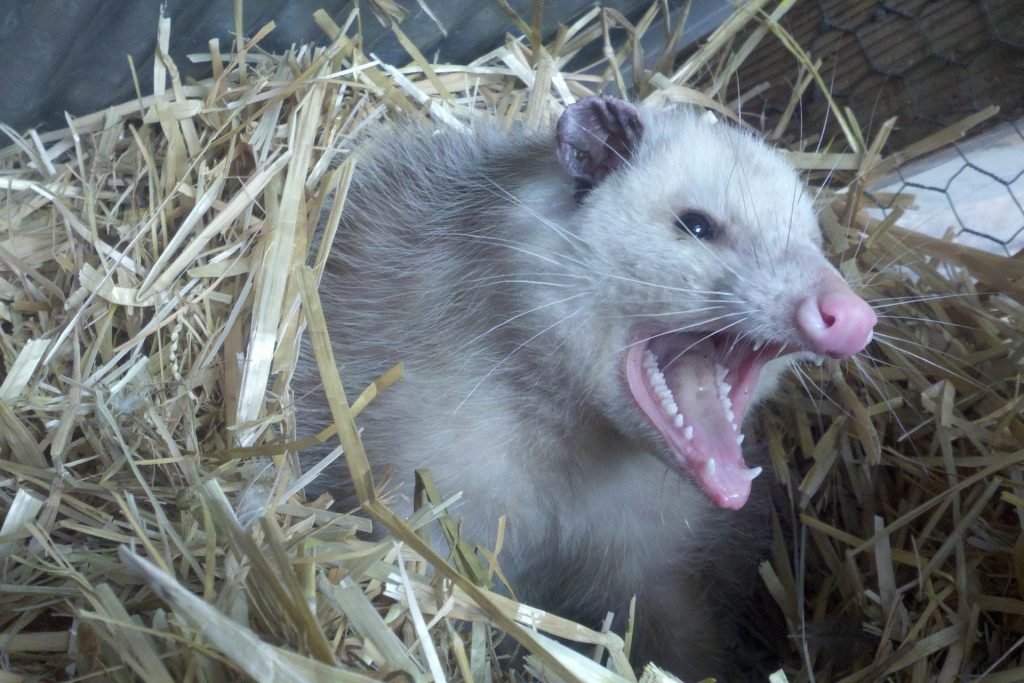
Common culprits like raccoons, foxes, and even determined rats can exploit these vulnerabilities. Their sharp senses can detect the faintest scent of an egg, and their agile bodies can squeeze through surprisingly small gaps. A distracted duck leaving the coop for a quick dip or a poorly sealed entry point can be all it takes for a predator to snatch an egg in a flash.
➡️ Learn more about common (and not-so-common) predators.
While fretting over stolen eggs is understandable, it’s crucial to remember that this isn’t a reflection on your care as a duck owner. Predation is a natural part of the ecosystem, and ducks have evolved strategies to mitigate its impact. Laying multiple clutches throughout the season increases the chances of successful hatching, and choosing secure nesting boxes within the coop can offer some protection.
➡️ How do you keep your ducks safe from predators?
However, taking additional steps can significantly reduce the risk of egg theft. Regularly inspect the coop for potential entry points and seal them securely. Consider installing predator-proof fencing around the coop perimeter and invest in motion-activated lights or ultrasonic deterrents to discourage unwelcome visitors. Providing multiple decoy nests within the coop can also distract predators from real eggs.
Ultimately, accepting some level of egg loss as a natural part of duck ownership can be helpful. By focusing on creating a secure environment and providing ample nesting options, you can do your best to protect your feathered friends’ precious clutches. And remember, even with the occasional setback, the joy of witnessing these quirky creatures grace your backyard with their antics and delicious eggs will undoubtedly outweigh the challenges.
Quacking Back to Egg-stacy: Solutions and Tips for a Bountiful Flock
So, you’ve identified the culprit behind your duck’s egg-less woes. But fear not, fellow duck enthusiast! By following these helpful tips and solutions, you can get your feathered friends back to their yolk-tastic routines.
Age:
- Young Ducks: Be patient! Offer a nutritious diet and ensure proper lighting to encourage their natural development.
- Senior Ducks: Consider adjusting their diet for their changing needs. Focus on quality protein and calcium supplements. Celebrate their egg-laying journey, even if it slows down.
Seasonality:
- Spring: Provide plenty of calcium and adjust the lighting to mimic longer daylight hours.
- Summer: Offer cool water baths and shady areas to combat heat stress. Don’t worry about a temporary dip in egg production – it’s perfectly natural.
- Autumn: Ensure proper nutrition and consider adding vitamins to their diet. Be patient and prepare for a potential hiatus until spring.
Nutrition:
- Protein Power: Offer a balanced diet rich in protein sources like commercial duck feed, legumes, or insects.
- Calcium Craze: Provide access to calcium supplements like oyster shells or crushed limestone grit.
- Vitamin Wonderland: Supplement their diet with fresh fruits and vegetables to ensure vitamin intake.
- Water Wisdom: Never underestimate the importance of clean, fresh water for optimal egg production.
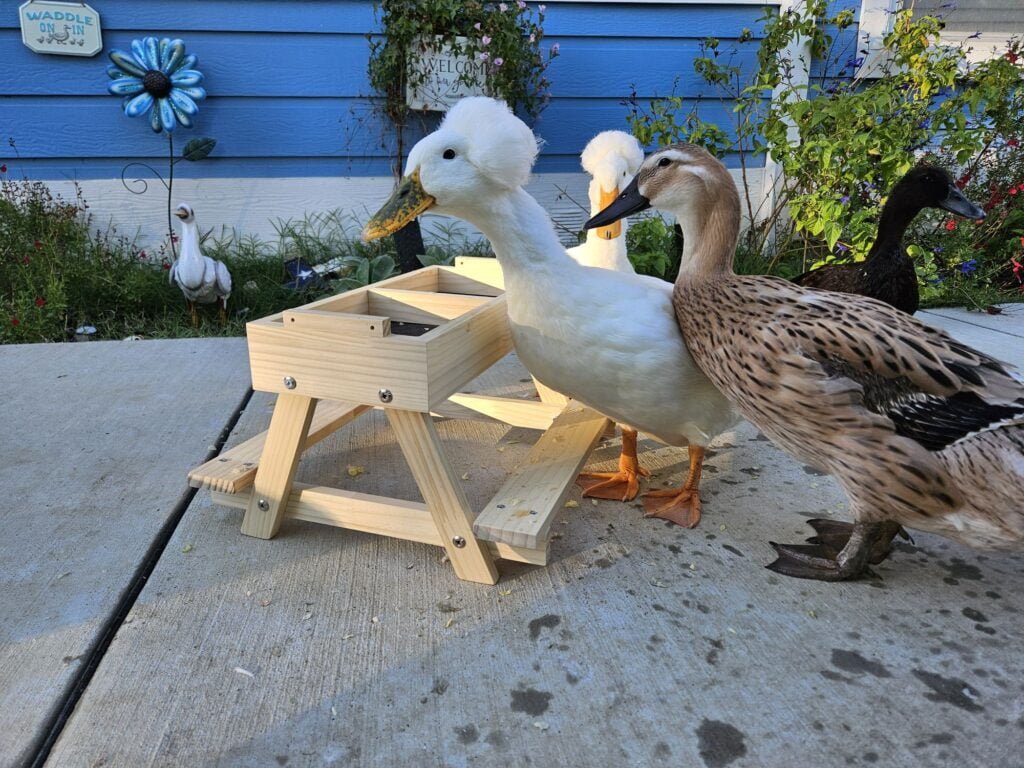
Stress:
- Create a Calm Oasis: Provide ample space, hiding places, and access to fresh water and shade.
- Minimize Noise and Change: Avoid sudden changes to their routine and loud noises that might trigger stress.
- Enrichment Activities: Offer foraging opportunities, swimming pools, or other stimulating activities to keep them mentally engaged.
Health Problems:
- Observe and Monitor: Be mindful of any unusual signs like lethargy, changes in appetite, or discharge.
- Veterinary Care: Consult a veterinarian if you suspect any internal issues or external parasites.
- Prevention is Key: Maintain a clean environment, provide a balanced diet, and avoid overcrowding to minimize health risks.
Genetics:
- Breed Choice: Before choosing your feathered friends, research breeds known for their egg-laying potential.
- Individual Differences: Embrace the unique personalities and egg production capacities within your flock.
- Celebrate Variety: Enjoy the different sizes, colors, and flavors of eggs your ducks produce – it’s part of their charm!
Remember:
Every duck is an individual, and solutions may vary depending on their specific circumstances. Combine these tips with your own care and dedication, and you’ll be well on your way to a happy, healthy flock laying enough eggs to fill your omelets and your heart with joy!
Related Posts:
- Duck Egg Production: How Often Do Ducks Lay Eggs?
- Is My Duck Laying Eggs? Signs to Look For in Your Flock
- 15 Common Duck Health Conditions You Should Know About
- The Science Behind Duck Egg Laying Process: From Ovulation to Oviposition
- Navigating Pet Duck Molting: A Owner’s Handbook
- Essential Nutritional Needs of Ducks: A Complete Overview
- What Do Ducks Eat? Your Guide To Feeding Ducks
- Egg binding and soft-shelled eggs in ducks – everything you need to know
- Duck Eggs vs Chicken Eggs: A Comparative Analysis
- Ducks and Water: Keeping Your Flock Happy and Healthy

